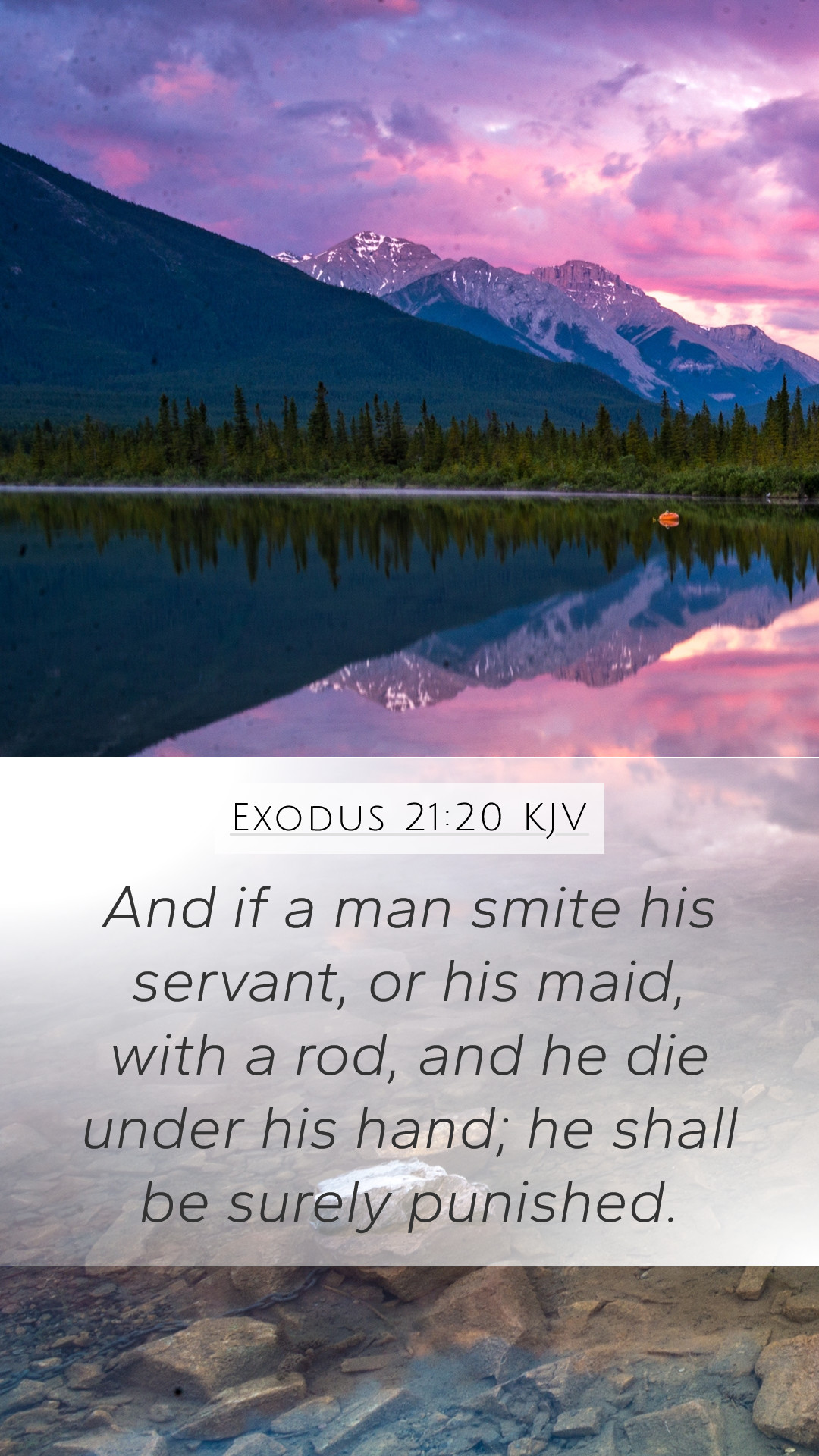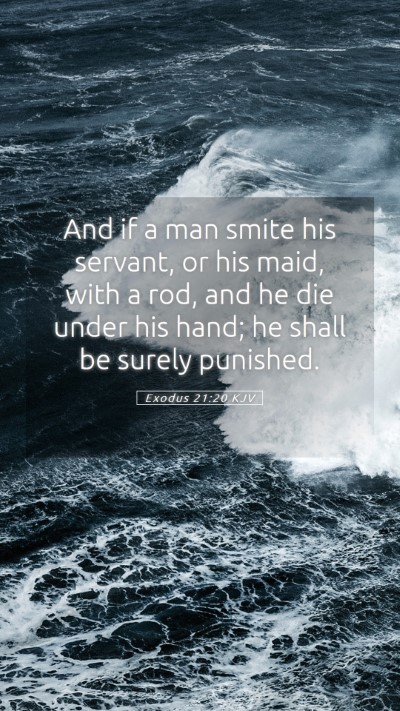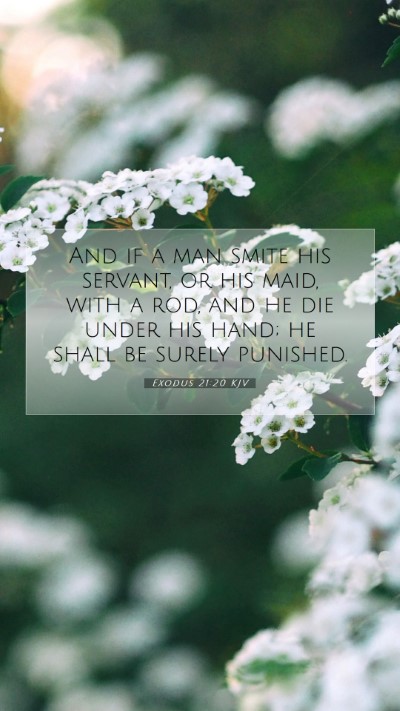Understanding Exodus 21:20
Exodus 21:20 states, "If a man strikes his male or female slave with a rod and the slave dies at his hand, he shall be punished." This verse raises important considerations regarding the treatment of servants and the concept of justice in ancient Israelite society.
Bible Verse Interpretations
The interpretation of this verse can be complex, as it touches on issues of morality, human rights, and the socio-economic conditions of the time. Public domain commentaries provide valuable insights into the meaning of this scripture:
-
Matthew Henry's Commentary:
Henry emphasizes the accountability of the master. He suggests that the severity of one's actions should lead to appropriate consequences, reflecting the principle that each person must answer for their wrongdoings. This indicates a measure of protection for the servant, asserting that their life has inherent value.
-
Albert Barnes' Notes:
Barnes elaborates on the notion of punishment, interpreting it as a safeguard against the harsh treatment of slaves. He notes that physical harm resulting in death would invoke severe consequences, reinforcing the concept of lawful conduct within societal structures, and promoting the humane treatment of all individuals.
-
Adam Clarke's Commentary:
Clarke discusses the implications of the punishment tied to the actions of the master. He highlights the difference in repercussions depending on whether the slave dies immediately or days later, indicating a complex legal framework designed to handle such incidents with fairness and precise judgment.
Meaning of Bible Verses
This verse serves as a reflection of social order and justice in ancient Israel. The harsh reality of slavery in this context does not justify it but rather calls for humane treatment and consequences for violence. It illustrates the biblical emphasis on justice, dignity, and the moral obligation to treat others—especially those in subordinate positions—with respect.
Historical Context of Exodus 21:20
To fully grasp the meaning of this verse, understanding the historical and cultural context is essential. In ancient Israel, slavery was common, but there were laws in place designed to protect the rights of slaves, reflecting an awareness of their humanity:
- The socio-economic structure often determined the necessity of slavery as a form of servitude.
- Such laws were progressive for the time and significantly influenced later discussions on human rights and ethics.
Bible Study Insights
For those engaging in Bible study, this verse encourages deep reflection on the treatment of others, ethics, and the application of justice. It challenges readers to consider their actions and the moral implications involved for individuals in positions of power:
- Consider the modern application of justice in relationships and workplaces.
- Reflect on how the treatment of others is viewed in light of scriptural teachings.
Cross References
Exodus 21:20 relates to several other verses that provide broader insight into the principles of justice and human dignity:
- Exodus 21:26-27: Addresses the consequences of harming a servant.
- Leviticus 24:17: Discusses the value of human life and the concept of retribution.
- Deuteronomy 24:14-15: Provides guidelines for fair treatment of hired workers.
Application of Bible Verses to Daily Life
In applying the teachings of Exodus 21:20 to contemporary life, one is called to actively promote justice and advocate for the dignity of all individuals, especially those in vulnerable positions. Discussions in Bible study groups can be enriched by exploring:
- The importance of empathy and kindness in treatment of others.
- Creating a culture where accountability is valued.
Conclusion
Exodus 21:20 serves as a critical reminder of the ethical responsibilities we bear in our interactions. Studying this verse equips believers with insights into justice, moral conduct, and the sanctity of human life. By engaging with these principles, we contribute to a more compassionate and just society.


